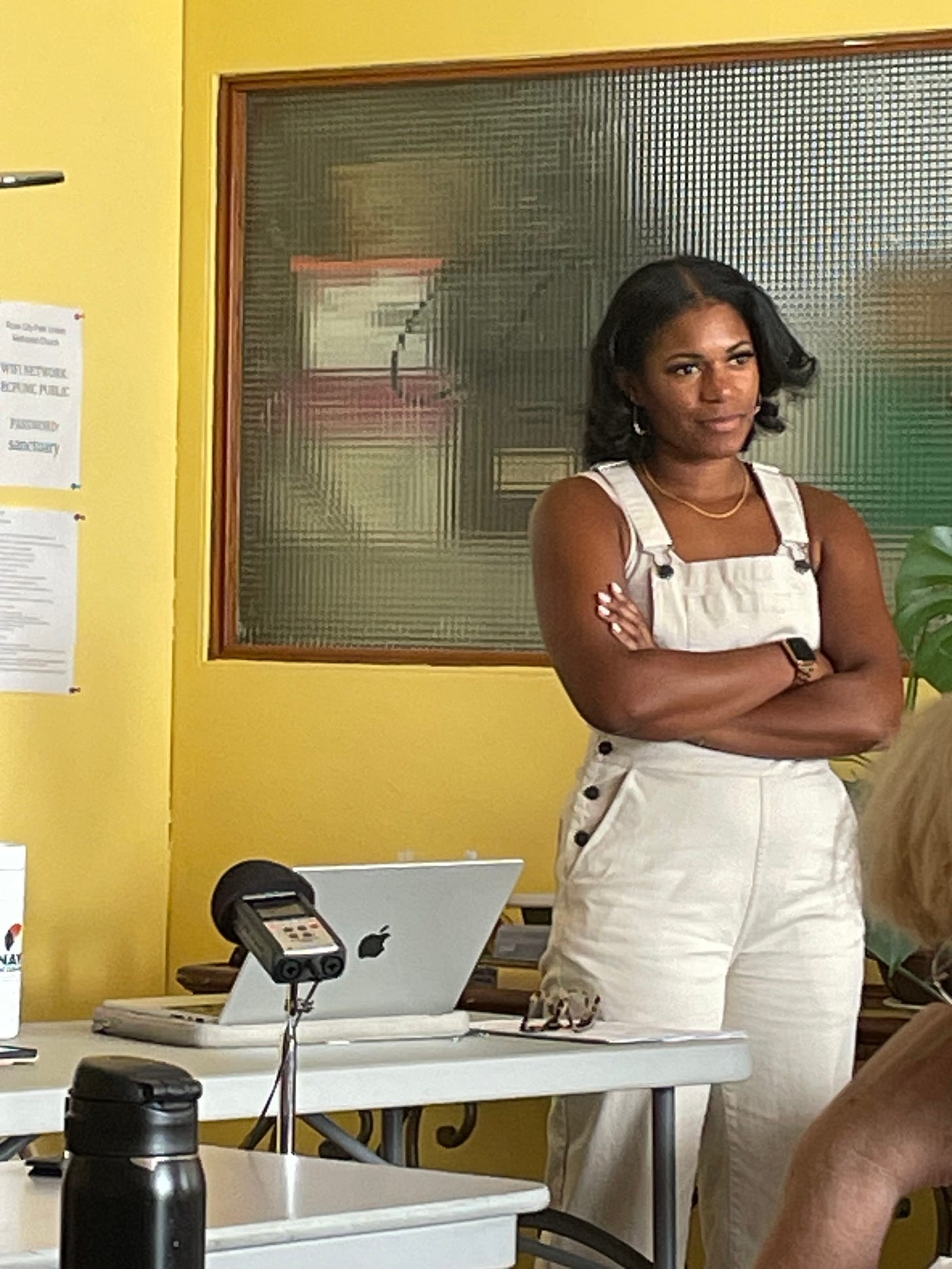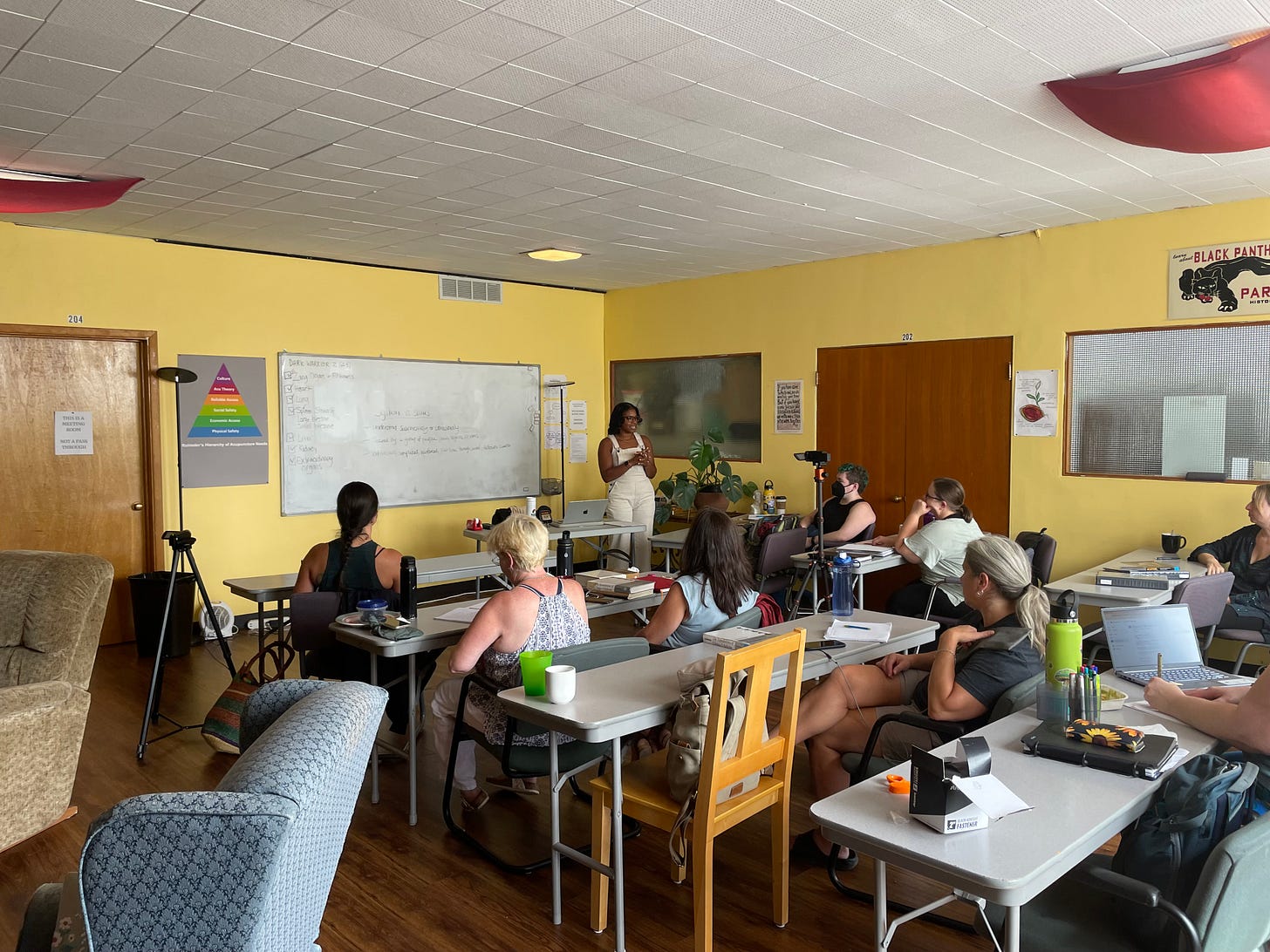If I look back on my learning curve in small business, there’s a pattern that shows up over and over. It’s embarrassing to confess, but it looks like this: There’s a thing and I don’t want to do it. I refuse to do the thing, I resist mightily -- until life forces me to do the thing, at which point I realize how valuable and useful the thing really is and wonder why I didn’t do it sooner.
Seriously, this happens over and over, you’d think I’d surrender faster. But at least I recognize the pattern? It started with small business itself; when I was in acupuncture school thirty years ago I hated practice management classes. I was intimidated. Since then I’ve come to terms with, and even come to love, many aspects of running a small business... except for self-promotion.
Every now and then I inadvertently end up on a phone call or email with a salesperson who’s offering to help me get more out of my marketing budget. And I always say the same thing: WCA doesn’t have a marketing budget. POCA Tech doesn’t have one either. We don’t advertise. Like, at all. At which point the salesperson ends the conversation because they’re thinking, how is this lunatic still in business and why am I wasting my time on her?
Yeah, you know where this is going.
The upside of refusing to do any promotion of WCA is that it leaves a clean space for people to discover for themselves how acupuncture works in their own bodies. After all, most of what I learned about how acupuncture works, I learned from listening to my patients describe their own experiences. People finding us through word of mouth, hearing their friends and family members describe acupuncture before they hear us describe acupuncture, gives them a particular kind of ownership that I think is valuable. Offering community acupuncture to patients as a resource to use on their own terms without ever lecturing them about how they should use it -- offering WCA and its clinics as a resource to people who often don’t have resources, treating them with way more respect than the rest of the healthcare system usually does -- I love all of that and I never get tired of it. That’s not about me avoiding anything.
However.
The first big aha moment I had in WCA’s coaching process with Camille, and something I want to share with other community acupuncturists in particular, was that there’s a distinction between how WCA relates to individual patients, whose autonomy we want to support, versus how we relate to other organizations and the larger Portland ecosystem. Organizations aren’t patients. It’s okay to have different boundaries and different practices in different relationships. It’s okay for WCA to lead our conversations with other organizations by being crystal clear with them about who we are and what we do.
It’s okay to tell other organizations how to think about community acupuncture.
That’s our job, actually. Hence this newsletter!
Last Monday, Camille came to talk to POCA Tech’s Cohort 8 -- our third year students -- about the importance of narrative in social change. A narrative is a story about human experience, she said, and social change requires changing the stories that we’ve been conditioned to believe and to reproduce. She asked the class, what was the narrative you first heard about acupuncture? She said, I heard it was a luxury service that my insurance didn’t cover.
Narratives are deliberately curated to serve specific agendas, and if you want to change the narrative about acupuncture, she told the class, you need to think about how to introduce new stories, stories that reframe the value of acupuncture and support community access to it.
I wish somebody had asked me back when I was in acupuncture school, what narratives have you heard about acupuncture? And I wish someone had introduced me to these concepts so that I was aware of them before I tried to start a business. Taking inventory of what you yourself have been conditioned to believe about acupuncture, before you go out and try to offer it to your community -- that seems like such a necessary step that could save so many headaches later.
Listening to Camille’s presentation, some things landed differently for me than they probably did for the students. When she said, it can take someone hearing something seven times before they even consider changing their behavior, I thought okay, we have to be patient. When she said, narrative change often happens over a generation, I thought, I guess we’re not doing too badly — and I’m glad we have a school to educate the next generation of community acupuncturists, since that’s what it’s going to take to change the narrative.
When she said, let’s open up the definition of acupuncture based on your perspective and the experiences of your patients, I thought YES -- that’s exactly what I want to do.
One thing I’m working on this year is making my own learning curve as visible as possible to students. We ask them to do lots of reflective writing; this Substack is me doing reflective writing. Because reflective writing works!
And upon reflection, one of the lessons that small business never stops teaching me is:
I have to participate more than I expected to, and maybe more than I wanted to.
If I don’t like the existing narrative about acupuncture as a luxury service for deserving individuals -- and I don’t, obviously -- I have to roll up my sleeves and create a different narrative. And then share it. It might not be comfortable but I already know — it’s just a matter of time before I’m wondering why I didn’t do it sooner.





